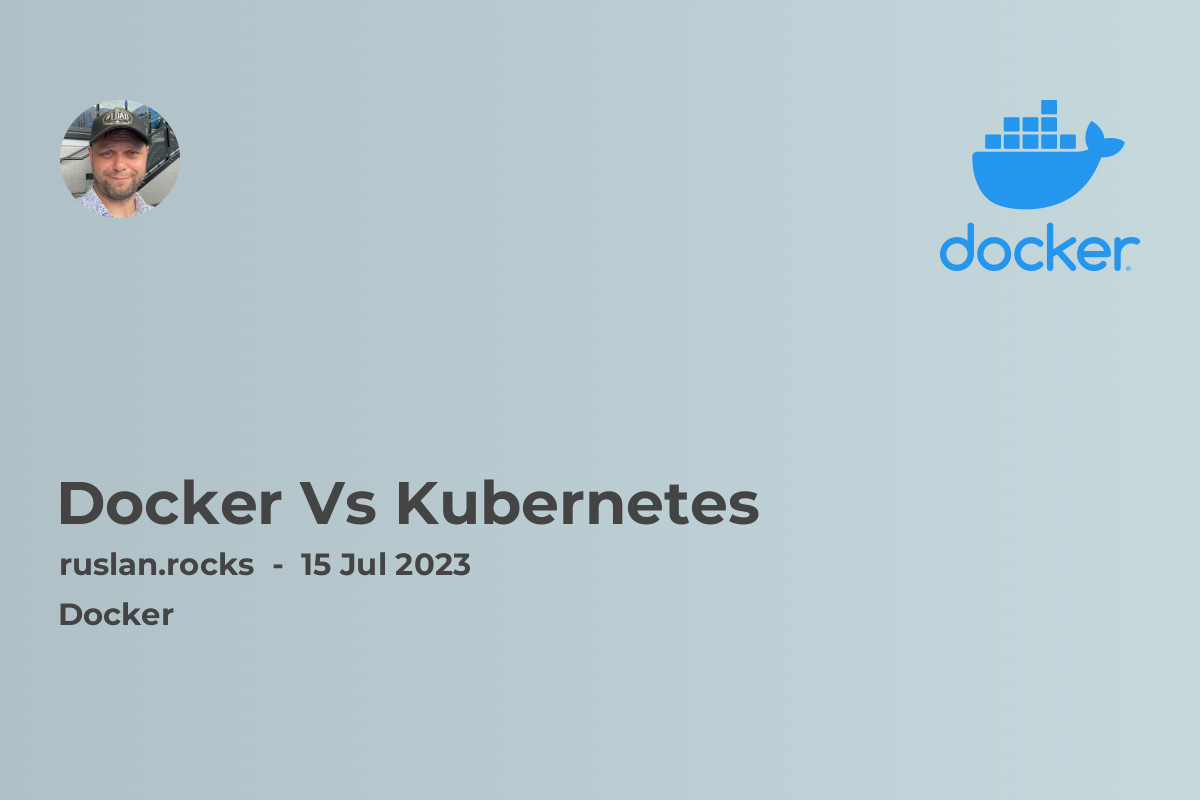- Introduction
- Docker: Containerization Made Easy
- Kubernetes: Container Orchestration at Scale
- Docker Vs Kubernetes: Key Differences
- Conclusion and Recommendations

Introduction
When it comes to container orchestration, two leading tools have emerged as frontrunners in the industry: Docker and Kubernetes. Both tools play a crucial role in deploying and managing containerized applications, but they have distinct features and use cases.
So, which container orchestration tool should you choose? In this article, we will delve into the differences and similarities between Docker and Kubernetes to help you make an informed decision.
Docker: Containerization Made Easy
Docker is an open-source platform that allows you to automate the deployment and scaling of applications using containerization. It provides a lightweight and portable environment for running applications, ensuring consistency across different environments.
With Docker, you can package your application, along with its dependencies and libraries, into a single container. This containerized approach makes it easier to manage and deploy applications, as you can run them consistently across multiple machines.
Docker is widely adopted for its ease of use and flexibility.
Kubernetes: Container Orchestration at Scale
Kubernetes, also known as K8s, is an open-source container orchestration platform that automates the deployment, scaling, and management of containerized applications. It is designed to handle large-scale deployments and provides features for high availability, load balancing, and self-healing.
With Kubernetes, you can deploy and manage containerized applications across multiple nodes in a cluster. It automatically handles tasks such as container placement, scaling, and rolling updates, making it ideal for complex and dynamic applications.
Kubernetes is renowned for its ability to manage highly scalable and distributed systems.
Docker Vs Kubernetes: Key Differences
Deployment and Scalability
Docker focuses on packaging and running applications within containers, making it ideal for development and testing environments. It provides a user-friendly interface and a simple command-line interface, allowing developers to quickly build and deploy apps.
On the other hand, Kubernetes excels in managing containerized applications at scale. It provides a declarative approach to application configuration, allowing you to define the desired state of your application and let Kubernetes handle the orchestration.
High Availability and Fault Tolerance
Kubernetes offers advanced features for high availability and fault tolerance. It automatically monitors the health of your application and can restart or reschedule containers if they fail. It also supports automated rolling updates and can distribute traffic across replicas to ensure uninterrupted service.
Docker, on the other hand, relies on external tools for high availability and fault tolerance. While you can use Docker Swarm or other clustering tools to achieve similar functionality, Kubernetes provides a more comprehensive and integrated solution.
Ecosystem and Community Support
Both Docker and Kubernetes have vibrant ecosystems and strong community support. Docker has a vast repository of pre-built images, allowing you to leverage existing technologies and frameworks. It also has a vast collection of plugins and integrations, making it easy to extend its functionality.
Kubernetes, being a more complex platform, has a robust community that actively contributes to its development. It has a large number of community-driven projects, such as Helm for package management and Prometheus for monitoring, that enhance its capabilities.
Conclusion and Recommendations
In conclusion, Docker and Kubernetes serve different purposes in the container orchestration landscape. If you are focusing on application development and testing, Docker provides simplicity and ease of use. On the other hand, if you are dealing with complex and highly scalable applications, Kubernetes offers a powerful set of features for managing containerized applications at scale.
To learn more about Docker and Kubernetes, check out the following articles:
-
Managing Microservices With Docker Swarm And Kubernetes - A comprehensive guide to using Docker Swarm and Kubernetes for managing microservices.
-
Container Orchestration Tools Comparison - An in-depth comparison of various container orchestration tools, including Docker and Kubernetes.
-
What Is Docker - An overview of Docker and its key features in containerization.
-
What Is Kubernetes - A detailed explanation of Kubernetes and its role in container orchestration.
-
Kubernetes Vs Docker Swarm - A head-to-head comparison between Kubernetes and Docker Swarm, another popular container orchestration tool.
Choose the tool that best suits your requirements and explore the vast possibilities of containerization and orchestration. Happy containerizing!
